Frugal Innovation and the Design Thinking Process
By: Frugal Innovation Hub (SoE of Santa Clara University) and Latin America Frugal Innovation Network
October 19th, 2021 – 9AM to 12 PM (PST)
|
|
Despite the advancements in water purification systems, water remains inaccessible to 1.1 million people globally; moreover, 5.000 people die worldwide every day due to illnesses associated with unclean water (OCDE).
Very commonly, socio-technological projects such as water purification projects fail to positively impact a population due to the lack of understanding of the social ecosystem where the need emerges from. Frugal Innovation is a frame of work ideal for engineers interested in improving the sustainability and replicability of their solutions by utilizing a human-centric design approach and by visualizing non-technical factors that directly impact the design process of your solution.
Join Santa Clara University’s Frugal Innovation Hub and the Latin America Frugal Innovation Network ESAN University (Peru) on learning how to use Frugal Innovation and the Design Thinking Process to help solve a real-world water challenge in Perú at a local scale.
|
|
Workshop outcomes:
- Get participants familiarized with the Design Thinking Process, Frugal Innovation and Frugal Design
- Push participants to apply and design in a practical manner an engineering solution to a social challenge
- Expose participants to social, economic and environmental factors that can impact the sustainability and replicability of their technological solution
Activities:
- Engage the participants with the challenge through documentation
- Design a solution using prototype/flow diagram tools
- Teamwork discussions
- Business elevator pitch
- Sharktank panel (investment challenge)
|
|
Number of participants: 25 (5 groups of 5)
Level and technical skills expected from the attendees: Water as many other global challenges is an interdisciplinary challenge within engineering. To be part of this workshop, all you need is to be ready to learn a new approach from the social sciences and business disciplines to reframe socio-technological challenges.
Instructors:
|
|
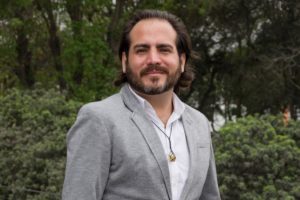 Christan J. Briceño Weiss is an Industrial Engineer with a Master’s degree in Marketing and in Marketing Science. Experience in consulting, technical-commercial management, B2B marketing, innovation and sustainability. Focused on seeking challenges in the educational and social fields. NGOs. University professor of design thinking, innovation and entrepreneurship courses. Executive Director in Frugal Lab. Mentor in Incubadora Startup UNI. Member of the Latin America Frugal Innovation Network. Christan J. Briceño Weiss is an Industrial Engineer with a Master’s degree in Marketing and in Marketing Science. Experience in consulting, technical-commercial management, B2B marketing, innovation and sustainability. Focused on seeking challenges in the educational and social fields. NGOs. University professor of design thinking, innovation and entrepreneurship courses. Executive Director in Frugal Lab. Mentor in Incubadora Startup UNI. Member of the Latin America Frugal Innovation Network.
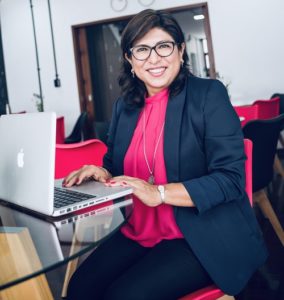 Naldi S. Carrion Puelles has a Masters in Project Management and Masters in Management Science Research, with bachelor degrees in Civil, and Sanitary Engineering. Phd candidate with research focus on innovation strategies in resource-constrained environments. General coordinator at Universidad ESAN’s Technology Innovation Center on digital fabrication and 3D modeling. Agualimpia NGO, and ESAN InnovationHub’s Board of Directors Member. Latin American Frugal Innovation Network’s Founder member. Peruvian Fab Labs Network’s manufacturing team leader. Undergraduate and postgraduate professor. Twenty years of professional experience within private, social, academic, and governmental organizations, focused on providing an innovative way of thinking to strengthen organizations’ capabilities to do it better with fewer resources and specialized in Territorial Planning, Landscape, Nature Protection. Naldi S. Carrion Puelles has a Masters in Project Management and Masters in Management Science Research, with bachelor degrees in Civil, and Sanitary Engineering. Phd candidate with research focus on innovation strategies in resource-constrained environments. General coordinator at Universidad ESAN’s Technology Innovation Center on digital fabrication and 3D modeling. Agualimpia NGO, and ESAN InnovationHub’s Board of Directors Member. Latin American Frugal Innovation Network’s Founder member. Peruvian Fab Labs Network’s manufacturing team leader. Undergraduate and postgraduate professor. Twenty years of professional experience within private, social, academic, and governmental organizations, focused on providing an innovative way of thinking to strengthen organizations’ capabilities to do it better with fewer resources and specialized in Territorial Planning, Landscape, Nature Protection.
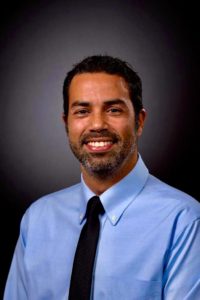 Allan A. Báez Morales is a Sociologist with a minor in Geography and an M.Sc. in Geology with an emphasis in Management of Natural Disasters. In the U.S, Allan worked as a consultant for the United States Geological Survey, and for 8 years Mr. Báez worked for social ventures in the Silicon Valley focusing on the implementation and sustainability of technologies designed for people in vulnerable conditions and in alliance with companies such as Google, CISCO, the Tech Museum, Vodafone and Twitter. Allan A. Báez Morales is a Sociologist with a minor in Geography and an M.Sc. in Geology with an emphasis in Management of Natural Disasters. In the U.S, Allan worked as a consultant for the United States Geological Survey, and for 8 years Mr. Báez worked for social ventures in the Silicon Valley focusing on the implementation and sustainability of technologies designed for people in vulnerable conditions and in alliance with companies such as Google, CISCO, the Tech Museum, Vodafone and Twitter.
Currently, Mr. Báez is the Director of Programs and Associations of the Frugal Innovation Hub of the University of Santa Clara, Ca. where he facilitates and manages international and local projects using frugal innovation as a framework.
|
|
Application of IoT During Pre- and Post-COVID 19 Pandemic (A Humanitarian Services Workshop)
|
October 19th, 2021 – 9AM to 12 PM (PST)
|
|
IoT is a rapidly evolving research area with unprecedented growth potential in application domains that range from environmental monitoring, manufacturing, energy management, healthcare, home automation to transportation and infrastructure management. The IoT revolution is reshaping modern healthcare solutions for implementing technology and economic social prospectus. The current ongoing global challenge of the COVID 19 caused by the novel severe respiratory syndrome coronavirus effected global health crisis.
Scientists and medical doctors embarked on a race to produce safe and effective coronavirus vaccines in record time. IoT innovator and engineers can help these scientists to enable faster track of monitoring quality and logistics of the vaccination supplies. As per Center for Disease Control and Prevention (CDC) quote: “Heat, Cold or light exposure can damage vaccines, resulting in reduced potency. Once potency is lost, it cannot be restored”. The CDC states that improper storage – mainly temperature conditions – is the most common cause for loss of vaccine potency and effectiveness they experience.
This workshop provides theory and tutorials on how to build IoT systems to monitor temperature of vaccination at all stages from vaccine manufacturer, and shipment logistics up to all the way to the last stop of delivery at hospitals and clinics. Participants have an opportunity to learn complete design aspects of IoT solutions for monitoring temperature at all levels as described above. The workshop also intended to learn in designing IoT enabled solutions for hospital/clinic settings for access to information of vaccine storage conditions, route information and patient dashboard to increase trust and reliability between patients and facilities administering the vaccine. The workshop also covers the topics of how to send real time measured data from temperature sensor to web enabled SMS services, PM tools and social media networking platform such as twitter.
The learning objectives of this workshop are as described below:
- Learn building blocks for constructing an IoT project
- Learn various protocols for IoT platforms
- Write python code and firmware for reading sensor temp values
- Learn IoT connectivity protocols from sensors to the cloud
- Evaluate temp readings at all stages of supply chain for COVID 19 vaccination use case.
- Practice data analytics within the Thingspeak IoT platform
- Utilize cloud features to send data to twitter, cellular web platforms (SMS messaging) and other project management tools.
- Develop package and publish real time values to the local health organization/ community
- Create a user-friendly dashboard to monitor the output parameters as required by the CDC and health officials.
Instructors: |
|
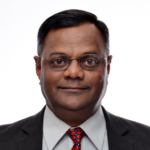 Shivakumar (Shiva) Mathapathi has over 25 years of experience in product development, design, and faculty. Shiva is a seasoned technologist, instructor and practitioner on the Internet of Things (IoT) with extensive experience as lead faculty, lab practice and mentorship in executing smart city, smart agriculture, assisted living and other IoT-related projects. Shiva has contributed to build the ecosystem and establish innovation pathways for the OpenIoT project, a blueprint and awarded Open Source project in the Internet of Things for Smart Cities sponsored by the European Commission. Shiva’s research and teaching area’s include, IoT, Data Analytics and Artificial Intelligence. He is currently teaching at UC San Diego Extn and Ohlone College California. Shivakumar (Shiva) Mathapathi has over 25 years of experience in product development, design, and faculty. Shiva is a seasoned technologist, instructor and practitioner on the Internet of Things (IoT) with extensive experience as lead faculty, lab practice and mentorship in executing smart city, smart agriculture, assisted living and other IoT-related projects. Shiva has contributed to build the ecosystem and establish innovation pathways for the OpenIoT project, a blueprint and awarded Open Source project in the Internet of Things for Smart Cities sponsored by the European Commission. Shiva’s research and teaching area’s include, IoT, Data Analytics and Artificial Intelligence. He is currently teaching at UC San Diego Extn and Ohlone College California.
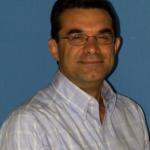 Dr. Farid Farahmand is currently the Chair of the Engineering Science Department (Electrical Engineering) at Sonoma State University in California, U.S.A. He is also the director of Advanced Internet Technology in the Interests of Society Laboratory. Since 2018 he has been a visiting faculty at Lawrence Berkeley National Laboratory (Berkeley Lab). Prior to his academic position at Sonoma State, Dr. Farahmand worked as the research scientist at Alcatel-Lucent Corporate Research and was involved in development of terabit optical routers. Farid has received multiple Fulbright Fellowships, and he has been a Fulbright Scholar since 2014. Dr. Farahmand holds multiple international patents, numerous reference conference articles and journal publications, and several book chapters, on the subjects of wireless communications, optical networking, green networking, and delay tolerant networks. Dr. Farid Farahmand is currently the Chair of the Engineering Science Department (Electrical Engineering) at Sonoma State University in California, U.S.A. He is also the director of Advanced Internet Technology in the Interests of Society Laboratory. Since 2018 he has been a visiting faculty at Lawrence Berkeley National Laboratory (Berkeley Lab). Prior to his academic position at Sonoma State, Dr. Farahmand worked as the research scientist at Alcatel-Lucent Corporate Research and was involved in development of terabit optical routers. Farid has received multiple Fulbright Fellowships, and he has been a Fulbright Scholar since 2014. Dr. Farahmand holds multiple international patents, numerous reference conference articles and journal publications, and several book chapters, on the subjects of wireless communications, optical networking, green networking, and delay tolerant networks.
|
|
Fundamentals of Off-Grid Electrical Systems
|
October 19th, 2021 – 9AM to 12 PM (PST)
|
|
This half-day tutorial covers the contextual, technical, and practical implementation aspects of off-grid electrical systems in developing countries. These off-grid systems include mini-grids, micro-grids, energy kiosks, solar home systems and solar lanterns. System architectures and components, including small-scale solar, wind, hydro, biomass and conventional generation sets, batteries and converters are covered. The mini/micro-grid design process is discussed. Pre-implementation best practices, including site assessment and considerations for business model development are discussed. The instructor draws upon his firsthand experience and contemporary research to provide attendees with the foundational knowledge needed to implement or study off-grid systems. The tutorial is based on the book “Off-Grid Electrical Systems in Developing Countries”.
Instructor: |
|
Prof. Henry Louie, Seattle University
 Dr. Henry Louie received his B.S.E.E. degree from Kettering University in 2002, his M.S. degree from the University of Illinois at Urbana-Champaign in 2004 and his PhD in Electrical Engineering from the University of Washington in 2008. He is a Professor in the Department of Electrical and Computer Engineering at Seattle University. In 2015 Dr. Louie was Fulbright Scholar to Copperbelt University in Kitwe, Zambia. He is the President and Co-founder of KiloWatts for Humanity, a non-profit organization providing off-grid electricity access and business opportunities in sub-Saharan Africa. Dr. Louie is an Associate Editor for Energy for Sustainable Development and is a founding member of the IEEE PES Working Group on Sustainable Energy Systems for Developing Communities. Dr. Louie is recognized as an IEEE Distinguished Lecturer for his expertise on energy poverty. He is a Senior Member of the IEEE and was a registered professional engineer in Zambia. He previously served as Vice President of Membership & Image of the IEEE Power & Energy Society. Dr. Henry Louie received his B.S.E.E. degree from Kettering University in 2002, his M.S. degree from the University of Illinois at Urbana-Champaign in 2004 and his PhD in Electrical Engineering from the University of Washington in 2008. He is a Professor in the Department of Electrical and Computer Engineering at Seattle University. In 2015 Dr. Louie was Fulbright Scholar to Copperbelt University in Kitwe, Zambia. He is the President and Co-founder of KiloWatts for Humanity, a non-profit organization providing off-grid electricity access and business opportunities in sub-Saharan Africa. Dr. Louie is an Associate Editor for Energy for Sustainable Development and is a founding member of the IEEE PES Working Group on Sustainable Energy Systems for Developing Communities. Dr. Louie is recognized as an IEEE Distinguished Lecturer for his expertise on energy poverty. He is a Senior Member of the IEEE and was a registered professional engineer in Zambia. He previously served as Vice President of Membership & Image of the IEEE Power & Energy Society.
|
|
Distributed Energy meets Humanitarian Needs
|
October 19th, 2021 – 9AM to 12 PM (PST)
|
|
The emphasis is now shifting toward a more decentralized energy infrastructure, where a mix of dispersed and low-carbon, renewable energy sources such as solar, wind, geothermal, fuel cell, and battery installations – collectively called distributed energy resources (DER) – are integrated with the large centralized power plants in the power grid.
Several trends are driving this transformation. Society’s desire for more sustainable ways to produce energy have spurred R&D advances, and many new products for DER applications, along with growing use of these systems, are already deployed in the market. In turn, their greater performance and expanding functionality have led to new regulations which have created compelling new business opportunities.
More recent focus on Stand-alone or remote systems or electric power in areas that do not have reliable electric delivery. These areas include application tiers, microgrids and DC systems.
Workshop topics:
The Core Standards
- IEEE 1547 – 2018: IEEE Standard for Interconnection and Interoperability of Distributed Energy Resources with Associated Electric Power Systems Interfaces
-
- The technical specifications for, and testing of, the interconnection and interoperability between utility electric power systems (EPSs) and distributed energy resources (DERs) are the focus of this standard.
- IEEE 2030-2011 – IEEE Guide for Smart Grid Interoperability of Energy Technology and Information Technology and the IEEE Smart Grid Interoperability Reference Model (SGIRM)
-
- IEEE Std 2030 provides alternative approaches and best practices for achieving smart grid interoperability. It is the first all-encompassing IEEE standard on smart grid interoperability providing a roadmap directed at establishing the framework in developing an IEEE national and international body of standards based on cross-cutting technical disciplines in power applications and information exchange and control through communications.
Standards Under development:
Interconnection
- IEEE P1547.2 – Application Guide for IEEE Std 1547(TM), IEEE Standard for Interconnecting Distributed Resources with Electric Power Systems
- IEEE P1547.9 – Draft Guide to Using IEEE Std 1547(TM) for Interconnection of Energy Storage Distributed Energy Resources with Electric Power Systems
- IEEE P1547.3 – Guide for Cybersecurity of Distributed Energy Resources Interconnected with Electric Power Systems
Interoperability
- IEEE 2030.5™-2018 – a protocol that has been instrumental in integrating interoperability into California regulations, and is critical to establishing vehicle-to-grid energy-transfer protocols.
- IEEE P2030.4; Guide for Control and Automation Installations Applied to the Electric Power Infrastructure
- IEEE 2030.7-2017; Standard for the Specification of Microgrid Controllers
- IEEE 2030.8-2018; Standard for the Testing of Microgrid Controllers
- IEEE 2030.9-2019 Recommended Practice for the Planning and Design of the Microgrid
- IEEE P2030.11 Guide for DERMS
General
- IEEE P2030.10 IEEE standard for DC microgrids for rural and remote electricity access applications
- IEEE P2030.10.1 Standard for Electricity Access Requirements with Safety Extra Low Voltage (SELV) Tier II and Tier iii (ESMAP) Multi-tier Framework for Household Electricity Supply
- Development of Application Classes Application of World Bank Group ESMAP Tiers to consider Stand-Alone locations without T&D or reliable power
- Grid Forming Inverters – Advanced Inverters.
Presenters: |
| Mark Siira, Wayne Stec, IEEE Standards Association SCC 21 and Panos Moutis, CMU
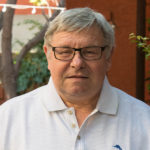 Mark Siira is a senior member of IEEE and currently active as a leader in several standards making organizations. Concurrent leadership roles related to standards include: Mark Siira is a senior member of IEEE and currently active as a leader in several standards making organizations. Concurrent leadership roles related to standards include:
- Chair of IEEE Standards Coordinating Committee 21 – IEEE Coordinating Committee on Interconnection and Smart Grid Interoperability
- Chair of IEEE P2030 – Guide for Smart Grid Interoperability, IEEE 2030.2-2015 – Guide for Energy Storage Interoperability, Vice-Chair for IEEE1547 Interconnection Standard Revision.
- Mark is also an active participant in the IEEE Power Systems Relaying Committee, including K10 Liaison, C26 Protection Testing.
- Mark is a member of the UL Standards Technical Panels 1741 (Inverters), UL2200 (Generators) and 3001 (Systems).
Mark has a Bachelor of Mechanical Engineering Degree from GMI Engineering and Management Institute (now Kettering University), and an MBA from Harvard Business School.
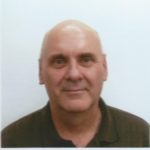 Wayne Stec is Principal at Distregen LLC, Flower Mound, Texas which he founded in 1999. Wayne’s consulting roles include providing guidance for the interconnection of renewable energy, battery storage, and other DER to the electric power system. Clients include national laboratories, research organizations, electric utilities, equipment and service providers, and project developers. Wayne Stec is Principal at Distregen LLC, Flower Mound, Texas which he founded in 1999. Wayne’s consulting roles include providing guidance for the interconnection of renewable energy, battery storage, and other DER to the electric power system. Clients include national laboratories, research organizations, electric utilities, equipment and service providers, and project developers.
Wayne received his B.S. Degree in Electrical Engineering from Illinois Institute of Technology in 1977, and his MBA from DePaul University in 1988. He has over 45 years of experience in the electrical transmission and distribution industry and in consulting including protection systems, distribution systems, transmission systems, generation systems, storage systems, and advanced metering systems. He has been Principal at Distregen LLC, Indianapolis, Indiana, since 1999. Before that he was Director at R.W. Beck, Manager – Information Technology & Automation at ABB Power T & D, Sales Manager – Protection, Meters & Power System Studies at GE Energy, and Project Manager/Application Engineer/Power Systems Engineer at General Electric.
Wayne currently is active in the several standards organizations: IEEE SCC21 – Vice-Chair in Standards Coordinating Committee 21 that oversees the development of standards in the areas of fuel cells, photovoltaics, dispersed generation, and energy storage, IEEE 1547.2 – Working group chair of IEEE 1547.2 application guide for IEEE 1547, and IEEE PSRC – Active contributor in several Power Systems Relay Committee standards and task force documents.
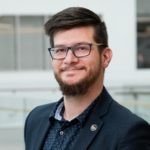 Panayiotis (Panos) Moutis, PhD, has been Special Faculty with the Scott Institute for Energy Innovation at Carnegie Mellon University (CMU) since August 2018 (postdoc at Electrical & Computer Engineering, CMU, 2016-18). His recent grants include one from the national system operator of Portugal, REN, for the development of a transmission expansion planning platform, and another from the moonshot factory of Google, X, for the digital twin of the electrical grid. Between 2018-20 he served as a Marie Curie Research Fellow with DEPsys, Switzerland, on distribution grid synchronized measurements and state estimation. In 2014 he was awarded a fellowship by Arup UK (through the University of Greenwich), on the “Research Challenge of Balancing Urban Microgrids in Future Planned Communities”. In 2013 he won the “IEEE Sustainability 360o Contest” on the topic of Power. Throughout 2007-15, as part of Prof. Nikos Hatziargyriou’s research group he contributed to over a dozen R&D projects funded by the European Commission. Panayiotis (Panos) Moutis, PhD, has been Special Faculty with the Scott Institute for Energy Innovation at Carnegie Mellon University (CMU) since August 2018 (postdoc at Electrical & Computer Engineering, CMU, 2016-18). His recent grants include one from the national system operator of Portugal, REN, for the development of a transmission expansion planning platform, and another from the moonshot factory of Google, X, for the digital twin of the electrical grid. Between 2018-20 he served as a Marie Curie Research Fellow with DEPsys, Switzerland, on distribution grid synchronized measurements and state estimation. In 2014 he was awarded a fellowship by Arup UK (through the University of Greenwich), on the “Research Challenge of Balancing Urban Microgrids in Future Planned Communities”. In 2013 he won the “IEEE Sustainability 360o Contest” on the topic of Power. Throughout 2007-15, as part of Prof. Nikos Hatziargyriou’s research group he contributed to over a dozen R&D projects funded by the European Commission.
Panos received both his diploma (2007) and his PhD (2015) degrees in Electrical & Computer Engineering at the National Technical University of Athens, Greece, and has published more than 30 papers and contributed to 5 book chapters. He has accumulated over 10 years of industry experience on projects of Renewable Energy Sources and Energy Efficiency, and serves in energy start-ups as advisor and executive. He is a senior member of multiple IEEE societies, member of the IEEE-USA Energy Policy Committee and NASPI, associate editor of IEEE & IET scientific journals, active contributor to IEEE standards working groups, chair of the IEEE Smart Grid Publications Committee and editor-in-chief of the “IEEE Smart Grid Newsletter”. Personal Website for more information: https://panay1ot1s.com/
|













